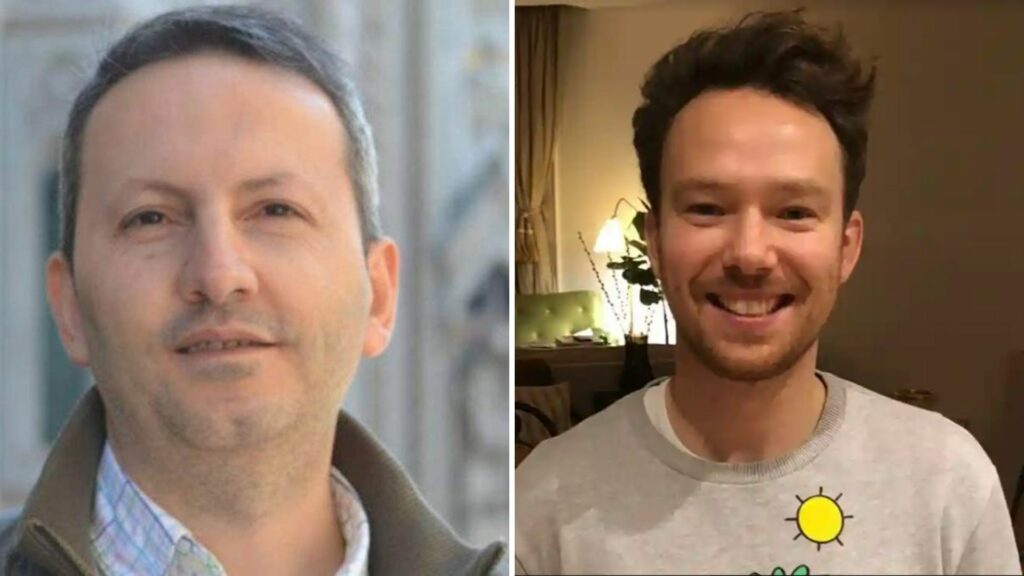The Swedish EU official Johan Floderus was released from Iranian prison on Saturday while the emergency medicine researcher Ahmadreza Djalali with double Swedish-Iranian citizenship still languishes in prison since 2016 with an imminent death sentence hanging over his head.
The surprising prisoner exchange took place last weekend and was announced by the Swedish prime minister Ulf Kristersson after his government until now had repeatedly said that it does not bargain about the release of innocent citizens. Floderus, 32, who is working for the European External Action Service (EEAS), was arrested in 2022 when visiting Teheran on a private visit.
He was released together with another recently detained Swedish-Iranian in return for Iranian Hamid Noury, a former prison official who had been arrested in Sweden in 2019 and sentenced to lifetime for war crimes by a Swedish court in July 2022. Both Floderus and Djalali are Swedish nationals but Iran does not recognize Djalali’s Swedish citizenship.
Today 52 and married with two children, Djalali was like Floderus accused of cooperation with hostile states and espionage for Israel but no evidence was ever presented to support the allegations. Djalali was sentenced to death in October 2017. UN observers stated that the trial was unfair and called on Iran to cancel the death sentence and release him immediately.
In a video recording from his prison, released by Swedish Daily Dagens Nyheter on Tuesday, Djalali addressed directly the Swedish prime minister. “I’m talking to you from the Evin prision, inside a terrible cave, where I have spent eight years and two months, almost 3,000 days, of my life. During this period, I asked every day if it was the last day in my life.”
In the recording, he says he is happy that two persons have been released but he thinks that it is discriminating that he has been left behind, facing the risk of execution. His wife wrote in the Swedish newspaper that the Swedish ministry of foreign affairs should be held accountable for this kind of discrimination and accused politicians of having ruined her family.
Belgium also had an opportunity to include Djalali in a prisoner exchange for its citizen Olivier Vandecasteele according to an agreement with Iran but did not insist on it because Djalali is not a Belgian citizen. He was a guest researcher in emergency medicine at ULB in Brussels before he travelled to Teheran where he was wrongly arrested.
Iran is accused of detaining European citizens and using them as hostages in exchange for their own citizens who have been sentenced to prison by European courts for crimes committed in Iran or on European soil. This happened in the Belgian case and now in the Swedish case. Iran’s arrest of Floderus in 2022 followed after the Swedish arrest and trial of Noury, to be later used in a prisoner exchange.
Will the EU continue to leave it to the member states to decide on prisoner exchanges or will the EEAS step up its role and assess the need of a common EU position to ensure fair and equal treatment of all its citizens that are illegally arrested by Iran and sentenced after a show trial behind closed doors?
“The handling of the cases of the EU nationals in prison is led by the country of origin, who has the primary responsibility in consular situations,” Peter Stano, EU’s lead spokesperson for foreign affairs, replied. “EU institutions and especially the EEAS get involved only if specifically requested so by the member state who has the lead on a respective case.”
Judging by the two latest cases, member states are reluctant to share their competency in protecting European citizens with the EU and ask for assistance. EU, on its part, is apparently not considering strengthening its role. The worrying trend of European citizens being illegally arrested and used as hostages by hostile powers is likely to continue.
M. Apelblat
The Brussels Times

